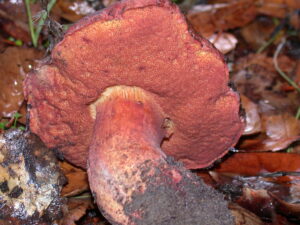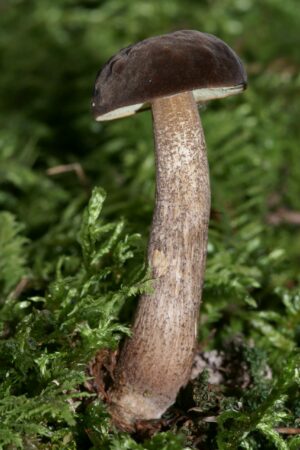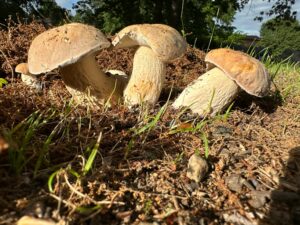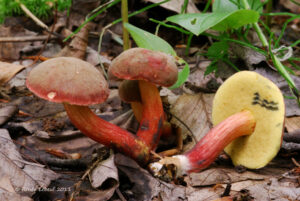Description
Name in North American Boletes: Boletus pseudoboletinus
Genus: Xerocomus
- Genus 2: Boletus
Species: pseudoboletinus
Common Name:
Tells: Larger, reddish brown cap gets dark brown & scaly w/age, then cracks, fissures, & fades to tawny. Yellow cap flesh may stain weak green & often smells “soapy”.
Other Information: Stem is pale yellow high, brownish low, & has coarse, brown, up-and-down ribs. Yellow to greenish yellow pores age to yellow-brown, stain blue and are elongated by the stem. Likes sandy soil in oak or oak-pine woods. Fairly common from Florida west through Texas.
Science Notes: DNA testing moved this mushroom into the newly erected genus “Xerocomus.”
Edibility: Good.
CHEMICAL TESTS:
- NH4OH (Ammonia): Cap surface turns blue or blue-green in young specimens.
- KOH: Cap surface turns brown in young specimens.
- FeSO4 (Iron Salts): Cap flesh turns dull green.
Links:
 |
0 |  |
0 |  |
140 |  |
423 |






Got something to discuss?